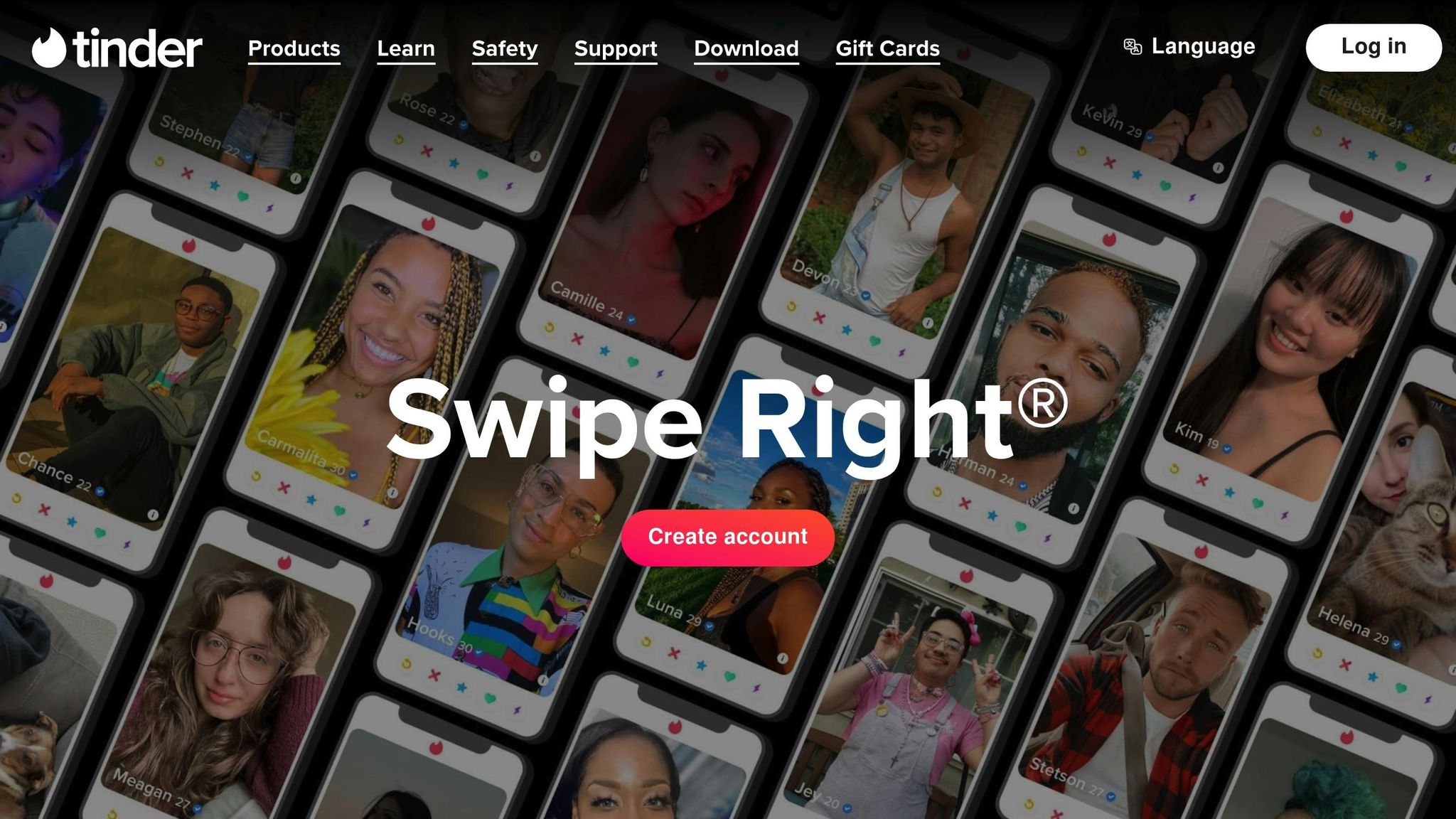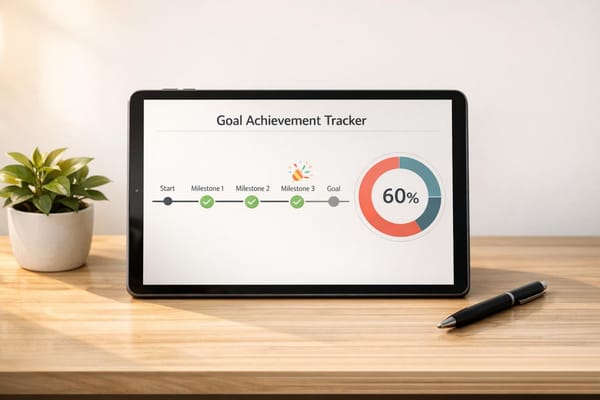Setbacks to Success: Lessons from Entrepreneurs
Explore how entrepreneurs transform setbacks into success, learning valuable lessons and strategies to overcome challenges on their journey.

Failures are not the end - they're stepping stones. Every successful entrepreneur has faced challenges, but their ability to learn and grow sets them apart. This article explores how Whitney Wolfe Herd (Bumble), Bill Gates (Microsoft), Steve Jobs (Apple), and Henry Ford (Ford Motor Company) turned early failures into major successes. Here's what you'll learn:
- Key lessons from failure: How setbacks expose flaws, build resilience, and lead to better strategies.
- Real-world examples: Stories of entrepreneurs who bounced back stronger after significant challenges.
- Why businesses fail: Common pitfalls like poor market research, lack of product-market fit, and leadership conflicts.
- Actionable strategies: Steps to analyze failures, improve cash flow, and refine ideas.
Your takeaway? Treat failures as opportunities to improve, not as dead ends. By reflecting, testing, and staying connected to your goals, you can transform obstacles into growth. Let’s dive in.
From Bankruptcy to $235 Million Exit Against All Odds | Kim Perell - Serial Entrepreneur & Author
Case Studies: Entrepreneurs Who Turned Failure into Success
These stories highlight how setbacks can become opportunities to create something extraordinary. Each entrepreneur faced challenges that could have ended their journey, but they turned those obstacles into stepping stones for success.
Whitney Wolfe Herd: From Tinder to Bumble

Whitney Wolfe Herd’s story is a powerful example of turning adversity into action. After co-founding Tinder, she faced discrimination and filed a sexual harassment lawsuit against the company. Rather than letting this experience define her, she saw an opportunity to address a major issue in the dating app world: the lack of a safe space for women.
This insight inspired her to launch Bumble, a dating app where women make the first move. By prioritizing safety and empowerment, Bumble reimagined online dating and created a platform that resonated with millions. Wolfe Herd’s personal challenges became the spark for a business that changed the rules of the game.
Bill Gates: Lessons from Traf-O-Data
Before Microsoft became a tech giant, Bill Gates and Paul Allen faced failure with their first venture, Traf-O-Data. The company, which aimed to automate traffic analysis, struggled with execution and ended up losing $3,494 - a tough blow for the budding entrepreneurs.
Paul Allen later reflected on the experience:
"Traf-O-Data was a good idea with a flawed business model. It hadn't occurred to us to do any market research, and we had no idea how hard it would be to get capital commitments from municipalities."
- Paul Allen
Despite the financial loss, Traf-O-Data was a critical learning experience. It gave Gates and Allen hands-on knowledge about microprocessors and taught them the importance of understanding their market. Allen further noted:
"If it hadn't been for our Traf-O-Data venture, and if it hadn't been for all that time spent on [University of Washington] computers, you could argue that Microsoft might not have happened. In my experience, each failure contains the seeds of your next success - if you are willing to learn from it."
- Paul Allen
The lessons they took from this early misstep - like refining their business model and focusing on market needs - helped lay the groundwork for Microsoft’s success.
Steve Jobs: From NeXT to Apple’s Comeback
Steve Jobs’s exit from Apple in 1985 is one of the most well-known setbacks in business history. After a power struggle with CEO John Sculley and the board, Jobs was ousted from the company he co-founded. But instead of giving up, he turned this low point into a period of growth and experimentation.
Jobs went on to start NeXT Computer, which, while not a commercial success, became a testing ground for innovation. NeXT allowed him to refine his approach to design, product development, and business strategy. When Apple acquired NeXT in 1997, Jobs returned to the company armed with new insights. These lessons became the foundation for Apple’s transformation into a global tech leader, with products like the iMac, iPod, and iPhone.
Henry Ford: Early Failures Drive Manufacturing Innovation
Before Henry Ford revolutionized the auto industry, he faced a series of setbacks. His first venture, the Detroit Automobile Company, launched in 1899 but failed due to issues with quality and costs. The company dissolved in 1901 after producing only a few vehicles, teaching Ford hard lessons about efficiency and managing investor expectations.
Ford’s next attempt, the Henry Ford Company, also ended in failure. Disagreements with investors forced him to leave the company in 1902. These experiences underscored the importance of maintaining control and having a clear vision.
When Ford established the Ford Motor Company in 1903, he applied everything he’d learned. By focusing on standardized production and affordability, he introduced the Model T in 1908 and revolutionized manufacturing with the assembly line in 1913. This innovation cut production time from over 12 hours to just 93 minutes, making cars accessible to the masses. Ford’s early failures were instrumental in shaping his groundbreaking approach to business and manufacturing.
Why Businesses Fail and How to Grow from It
Understanding why businesses fail can transform setbacks into stepping stones for future success.
Common Reasons for Business Failure
Most business failures stem from predictable challenges that, with the right approach, can often be avoided. One of the biggest culprits? Poor market research.
Without proper research, businesses risk creating products or services that don't resonate with their target audience. This ties directly into another major issue: lack of product-market fit. Entrepreneurs sometimes get so attached to their ideas that they skip the crucial step of validating whether customers actually need or want what they're offering. Take Ford’s early missteps as an example - misreading the market can lead to costly mistakes.
Premature scaling is another frequent pitfall. Expanding too quickly without a stable foundation can wreak havoc on cash flow and operations. Early signs of success are sometimes mistaken for consistent demand, leading businesses to stretch their resources too thin.
Internal issues like poor team dynamics and leadership conflicts can also derail even the most promising companies. Steve Jobs’ temporary departure from Apple is a classic example of how leadership struggles can disrupt a business, even if such challenges eventually pave the way for growth.
Lastly, insufficient capital management is a critical factor. Running out of funds before hitting key milestones leaves businesses vulnerable, unable to secure additional investment or achieve profitability.
Recognizing these common pitfalls is the first step toward creating a plan to recover and grow.
How to Turn Failures into Growth Plans
The challenges listed above highlight the importance of adopting a new perspective. Entrepreneurs like Whitney Wolfe Herd and Steve Jobs show us that the key to bouncing back lies in reframing failures as opportunities for feedback rather than final defeats. This mindset shift allows business owners to learn from their mistakes and apply those lessons to future endeavors.
Successful entrepreneurs take time to reflect after setbacks. They analyze what went wrong, identify areas for improvement, and create actionable plans. Wolfe Herd’s experiences at Tinder, for instance, gave her insights into workplace dynamics and user needs, which she used to shape Bumble’s woman-first approach.
Rather than trying to fix everything at once, break challenges into smaller, manageable tasks. Test solutions step by step, and refine based on what works.
A strong support system is also invaluable. Mentors and peers can help uncover blind spots and provide actionable advice during tough times.
Maintaining perspective and balance is equally important. Failure is rarely permanent. By keeping their eyes on long-term goals, entrepreneurs can stay motivated and take calculated risks, even in the face of setbacks.
Finally, learning from others’ experiences can be a game-changer. Studying how successful entrepreneurs overcame similar obstacles can offer practical strategies to apply in your own journey.
Adopting a growth mindset - seeing every setback as a chance to improve - has been a common thread in the stories of countless entrepreneurs who turned early struggles into extraordinary success.
Practical Lessons for New Entrepreneurs
The journeys of Whitney Wolfe Herd, Bill Gates, Steve Jobs, and Henry Ford offer valuable lessons for anyone starting their entrepreneurial path. Their stories highlight the importance of seeing setbacks as chances to grow, preparing for challenges, and validating ideas with real-world feedback. Let’s break down how these principles can guide your own success.
Mindset and Resilience
Treat failure as a chance to learn. Gates’ early mistakes taught him the importance of testing ideas before diving in, while Jobs used his time away from Apple to sharpen skills that later disrupted entire industries. The key is to see failures not as dead ends but as stepping stones packed with lessons.
Prepare yourself to bounce back. Jobs didn’t waste his time after leaving Apple - he built NeXT and acquired Pixar, both of which shaped his legendary comeback. Resilience isn’t just about enduring tough times; it’s about using them to refine your skills and strategies.
Adapt based on market feedback. Ford’s success came from his ability to tweak and refine his vision based on what the market needed. Rarely does the first idea work perfectly, and that’s okay. What matters is your willingness to adjust.
Build your safety net early. Whitney Wolfe Herd’s ability to create Bumble after her experience at Tinder wasn’t just about grit - it was also about the support system she had in place. Surround yourself with mentors, peers, and advisors who can help you navigate challenges and see opportunities you might miss on your own.
Practical Steps for Success
The right mindset sets the stage, but success also depends on taking concrete actions. Here are some steps to turn setbacks into opportunities:
Test your ideas thoroughly. Don’t rely on friends or family for feedback - they’re often too kind. Instead, get input from real customers. Early validation ensures you’re solving a problem people care about before you invest too much time or money.
Stay connected to your customers. Regularly check in with your audience to understand their needs and frustrations. Wolfe Herd’s success with Bumble came from her deep understanding of what women wanted in a dating app, and she continuously refined the product based on that feedback.
Keep your business flexible. Ford revolutionized manufacturing by thinking outside the box. Similarly, avoid locking yourself into rigid systems early on. Build a business model that can evolve as you gain new insights.
Master cash flow management. Many of the entrepreneurs mentioned faced financial hurdles, but they survived by keeping a close eye on their expenses. Know your burn rate, understand your revenue streams, and always have a plan to extend your runway. Managing money wisely can mean the difference between success and shutting down.
Learn from others - even outside your industry. Jobs’ break from Apple exposed him to new ideas and technologies that ultimately shaped Apple’s future. Don’t hesitate to borrow strategies from other industries or study competitors to find solutions you hadn’t considered.
Connecting with FromZeroToGrow Values
These lessons align with FromZeroToGrow’s mission: turning challenges into strategies for success. Here’s how:
Consistency matters. The entrepreneurs we’ve studied didn’t achieve success overnight. Gates’ habit of constant learning and Ford’s methodical approach to production show that steady effort beats occasional bursts of energy.
Perspective shapes your path. FromZeroToGrow emphasizes the power of viewing obstacles as opportunities. Jobs, Gates, and Ford didn’t let setbacks define them - they used them to grow. This mindset is crucial for anyone looking to build something lasting.
Action trumps overthinking. Instead of getting bogged down in endless planning, successful entrepreneurs take small, actionable steps. They test, learn, and improve based on real-world results. This mirrors FromZeroToGrow’s focus on providing practical insights you can apply immediately.
The road to success isn’t a straight line, but it’s one you can navigate with the right mindset, disciplined habits, and actionable strategies. By applying these lessons, you can turn your own challenges into the building blocks for future growth. Start small, stay consistent, and keep moving forward.
Conclusion: Using Setbacks to Build Success
Key Lessons Summary
The journeys of Whitney Wolfe Herd, Bill Gates, Steve Jobs, and Henry Ford show us one thing: setbacks can lead to better opportunities. Each of these entrepreneurs faced significant challenges, but what set them apart was their ability to learn from those moments and apply those lessons to their next steps.
Resilience matters more than perfection. When Traf-O-Data failed, Gates didn’t stop innovating. Jobs, after being ousted from Apple, used the experience to develop technologies and skills that would later reshape entire industries. Their stories prove that setbacks aren’t just obstacles - they’re opportunities to grow stronger.
Adaptability fuels success. Ford didn’t cling to his early designs; instead, he embraced the assembly line, transforming not just his company but the entire automotive industry. Wolfe Herd’s decision to focus on a women-first approach with Bumble became a game-changer. The most successful entrepreneurs are those who adjust their vision based on what works, not what they originally planned.
Listening to the market beats personal conviction. These leaders didn’t just follow their instincts - they paid attention to what their customers wanted. Solving real problems for real people is what makes businesses thrive.
Failures aren’t the end of the road - they’re lessons that shape the path forward. These lessons form the basis for actionable strategies, which we’ll explore next.
Growing with FromZeroToGrow
FromZeroToGrow embraces the idea of turning setbacks into stepping stones. The platform focuses on mindset, discipline, and practical strategies, echoing the principles that helped these iconic entrepreneurs succeed.
Your setbacks today can become tomorrow’s advantages. Start by analyzing what went wrong and pinpointing areas for improvement. This reflective process is what separates those who succeed from those who let failure hold them back.
FromZeroToGrow provides both the inspiration and the tools to keep you moving forward. Whether you’re rebuilding after a setback or launching your first venture, the platform’s focus on starting from scratch aligns with every entrepreneur’s reality.
Consistency beats quick bursts of effort. The success of Gates, Jobs, Ford, and Wolfe Herd didn’t happen overnight. They took small, deliberate steps every day toward their goals, and over time, those efforts compounded into extraordinary achievements. The same principle applies to your journey.
If these entrepreneurs could turn failure into success, so can you. With the right mindset and steady effort, every setback becomes an opportunity to build something better. Your journey starts now.
FAQs
How can entrepreneurs learn from their failures to achieve future success?
Entrepreneurs have a unique ability to turn setbacks into stepping stones by carefully analyzing what went wrong and pinpointing the root causes. This process not only reveals lessons worth learning but also highlights areas where improvements can be made. Owning up to these experiences and reflecting on them fosters resilience and hones decision-making abilities.
Embracing a growth mindset plays a crucial role here. Instead of seeing failures as final, they can be approached as opportunities to learn and move forward. By zeroing in on actionable takeaways and putting those lessons into practice, entrepreneurs can turn challenges into opportunities that drive progress and fresh ideas.
What are some common mistakes new entrepreneurs make, and how can they avoid them?
Common Challenges for New Entrepreneurs
Starting a business comes with its fair share of hurdles, and if these aren't tackled early, they can derail even the most passionate entrepreneur. One of the biggest pitfalls? Underestimating costs and mismanaging cash flow. Without a solid grip on finances, it’s easy to fall into financial trouble. The solution? Create a realistic budget and keep a close eye on every dollar spent.
Another mistake many new business owners make is diving in without a clear, written plan. A well-thought-out business plan acts like a roadmap, keeping you aligned with your goals and strategies. Taking the time to define your objectives, identify your target audience, and outline financial projections isn’t just helpful - it’s essential.
Lastly, the temptation to do it all yourself can lead to burnout. Running a business is demanding, and trying to juggle everything solo can quickly become overwhelming. Building a reliable support system, delegating tasks, and seeking advice from mentors can lighten the load and provide valuable guidance.
By focusing on smart budgeting, strategic planning, and leaning on others for support, entrepreneurs can lay the groundwork for a successful and sustainable business journey.
How does having a strong support system help entrepreneurs overcome setbacks?
A solid support system is essential for entrepreneurs facing challenges, offering a mix of emotional support, practical insights, and new ways of thinking. Whether it’s a mentor providing direction, peers sharing their lessons learned, or industry groups encouraging teamwork, these connections can keep entrepreneurs motivated and determined through difficult moments.
Relying on trusted allies can spark innovative ideas, boost self-assurance, and turn roadblocks into stepping stones for progress. Having people around who genuinely believe in your vision can be a game-changer when tackling obstacles.





